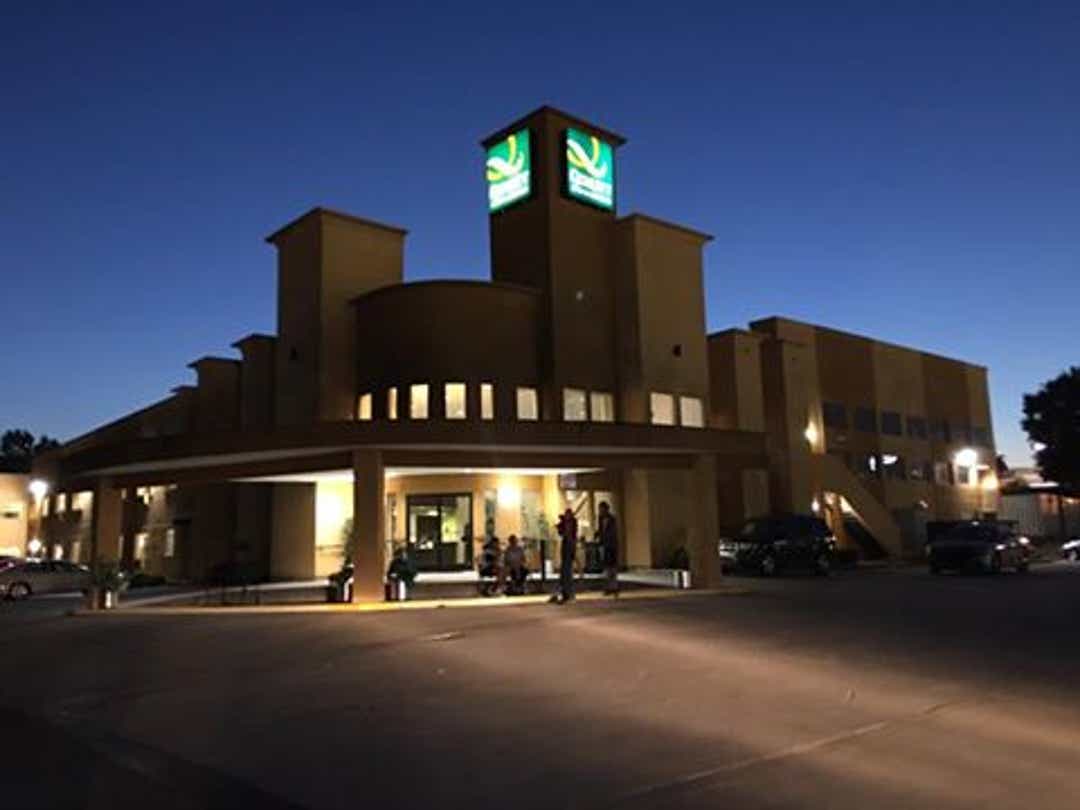The West Knox County, Tennessee, hotel where three young boys have drowned now faces its second lawsuit in connection to the deaths at its self-described indoor water park, reports the Knoxville News Sentinel, which is a part of the USA TODAY Network.
Raymond Belcher filed a lawsuit in Knox County Circuit Court last week after his 3-year-old son, Raymond Whitlock, became the third child to drown at Quality Inn and Suites West Waterpark on Feb. 16, 2019. The hotel, at 317 N. Cedar Bluff Road, has since changed its name to The Quest Hotel and Waterpark.
Although it advertises itself as a water park, the hotel had no lifeguards on duty, lacked a working emergency phone and violated a slew of state rules governing indoor swimming pools at the time of the most recent drowning, the lawsuit alleges.
Knox County Health Department inspectors, however, reported finding few safety problems during their monthly inspections of the facility, which features a hot tub, a swimming pool that is 7 feet deep in places and a children's play area complete with water slides.
Belcher, represented by Knoxville attorney T. Scott Jones, is seeking a total of $4.5 million in damages from parent hotel chain Choice Hotels International, franchisee Riddhi Enterprises and Riddhi owner Amit Patel.
Hotel management did not immediately return a request for comment Friday.

Hotel pool or water park?
The complaint does not describe in detail the circumstances surrounding Raymond Whitlock's drowning in February. The boy's father said at the time that a family friend took Raymond and several other children to the Knox County hotel for a vacation while he and his wife stayed behind in Cookeville, Tennessee.
Knoxville police said Raymond "was left unattended" at the pool along with his 6-year-old brother, a 5-year-old cousin and a 5-year-old friend. Hotel guests found the toddler in the deep end of the swimming pool around 5:45 p.m., according to the lawsuit, and he died shortly after being taken to a local hospital.
The complaint accuses the hotel of flouting state rules and industry standards regarding warning signs, pool lighting, the depth of its shallow end and more. An investigator working for Jones visited the hotel in July and reported finding inoperable underwater pool lights, an inoperable emergency phone, barriers with convenient climbing footholds, a gate that opened out toward the deep end of the pool, as well as no first aid kits, no defibrillators and no pool alarms.
But county health inspectors, who routinely check public pools for compliance with state law, did not cite the hotel for any such violations during their monthly visits shortly before and after the drowning.
For two consecutive months, inspectors did find the main pool had an insufficient lifeline, a rope with buoys that divides the shallow and deep ends of a pool. Twelve days after the drowning, records show, the county ordered the hotel to temporarily close the pool until it fixed the problem.
According to county inspection records, the hotel's swimming area is classified in a way that lifeguards are not required by law. Instead, signs are posted that read, "WARNING NO LIFEGUARD ON DUTY."
A health department spokeswoman said the water slides and other features are contained in a pool that is classified as "Type C" — a shallow wading pool that doesn't require a lifeguard — as opposed to "Type E" — a pool that requires a lifeguard and includes water slides, flumes or other attractions. The main pool, which is 7 feet deep in places, is classified as "Type B," or a hotel pool that does not require a lifeguard.
"There is no barrier between the children's play area and the main pool," Jones' investigator wrote in a report.
'Ultra hazardous and unreasonably dangerous'
The lawsuit also argues the first two drownings should have placed the hotel's managers "on notice that the water park was ultra hazardous and unreasonably dangerous for children," and that they needed to comply with rules and regulations.
In March 2015, 4-year-old Anderson Cooper Goldsmith, of Ringgold, Georgia, died after being discovered in the hotel pool on a crowded afternoon. Police said it appeared Anderson's flotation device had been removed before he entered the water.
In July 2017, 7-year-old Darshawn Martez Witt Jr. was found unconscious in the deep end of the pool. Other swimmers tried to rescue him, but he was pronounced dead at a local hospital. No adults were with Darshawn at the pool, police said at the time.
In 2018, Witt's family filed a lawsuit accusing the hotel of negligence, saying the young boy managed to enter the pool area unsupervised as a result of insufficient barriers.
Court records show that case is pending but has been inactive for almost a year.
Elsewhere in hotels: Pensacola hotel shooting to be reviewed as possible stand-your-ground case
Interesting: The most-anticipated 2020 hotel openings around the world
"water" - Google News
January 08, 2020 at 10:41PM
https://ift.tt/36AIDwV
Father sues Tennessee hotel water park where three boys drowned - USA TODAY
"water" - Google News
https://ift.tt/2XpCTT3
Shoes Man Tutorial
Pos News Update
Meme Update
Korean Entertainment News
Japan News Update
Bagikan Berita Ini














0 Response to "Father sues Tennessee hotel water park where three boys drowned - USA TODAY"
Post a Comment